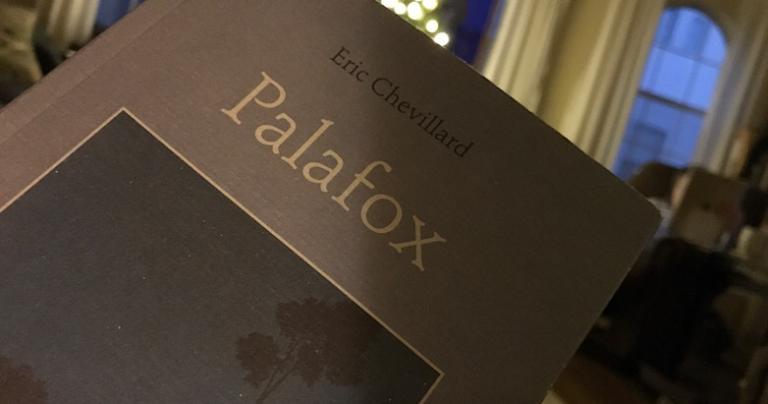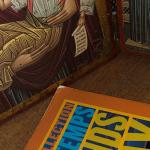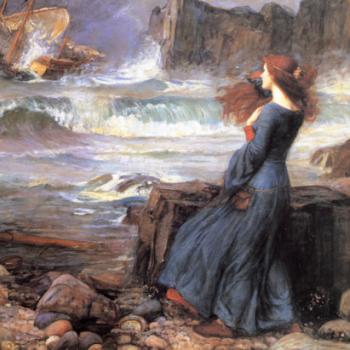 Palafox is blurbed by comparisons as if the reviewers could find no reason to praise the book, this very odd book, for itself. Let me: this is a book that is amusing, infuriating, ugly, and in a few paragraphs, beautiful. The prose (at least in W.A. Mason’s translation) lurches from gossip magazine style to high art in one page.
Palafox is blurbed by comparisons as if the reviewers could find no reason to praise the book, this very odd book, for itself. Let me: this is a book that is amusing, infuriating, ugly, and in a few paragraphs, beautiful. The prose (at least in W.A. Mason’s translation) lurches from gossip magazine style to high art in one page.
This bit is just funny:
General Fontechevades loves his work, prospects are good, there’s time left to read, which one can use to shoot rabbits, and he travels abroad a great deal, meets tons of people, or tonlets at first, one has to start somewhere, then more later, that’s what we do, pack people in, if not us who will?
Eric Chevillard is not writing your father’s post-modern novel: there is more plot here (at least in Palafox) and a discernible theme. What is it? An animal is born (do not try to picture it as much as accept each description as Chevillard writes it) and defies human attempts to tame and understand him.
He is Palafox, not a palafox, but so far as anyone can discover the Palafox.
The author is my age, yet the novel, it has a time, seems set during World War II. Even in America my generation cannot forget the War we did not live through, our grandparents were the greatest generation. In France, the memory must be different, but no less intense: the worst generation. The book is written in a shadow that later generations share, but do not understand. We were told about the time before World War II remade the world, our children and their children merely live in it.
If it is falling apart, that World War II consensus, this is less through dislike than incomprehension. It has been reality in an era when we can video, print, and reflect at a rate greater than at any other time. The changing of the guard, the birth of a new creature unaware of the War, is a greater shock as a result. A Medieval could lose a great king like Alfred and it would be centuries before enough reflection could tell a later generation what had been lost. Centuries later those memories of what was could be (nearly) forgotten as men moved on to understand other changes. It is different now. We have hardened our old order in words and reflected massively, if not always well. The forgetting occurred in three generations.
Palafox reminds us that the birth of the new animals will consume all the trash of the old . . . And maybe a bit more!
There is nothing in Palafox to dispute that for the French, the worst generation left a heritage that a new animal would do well to escape. Within two chapters, only the wild creature is sympathetic, if only because he is a brute and so allowed to be brutal. Scientists keep insisting on dissecting, misunderstanding, or mislabeling. The ruling class are classless. If Palafox does not end well, then maybe (God help us!) the new generation in France will not get free either. That’s sad, even if they should.
Read Palafox for pleasure and to consider science, creation, and the future of France in the entrails of this book.













